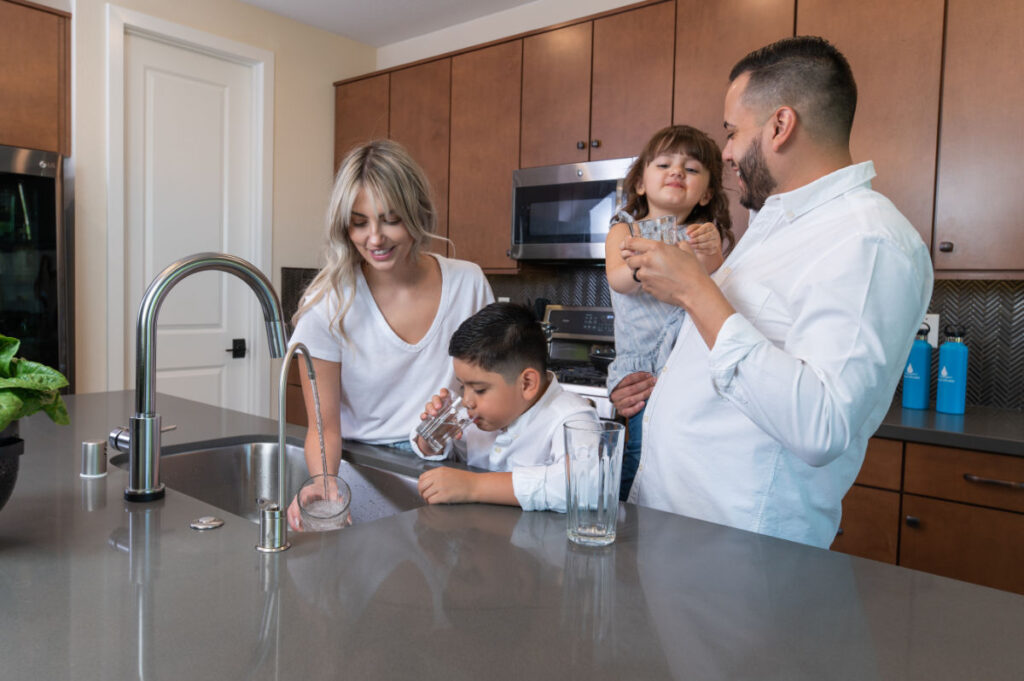Disasters happen. From hurricanes and earthquakes to floods and contamination crises like the ones in Flint, Michigan, and Hoosick Falls, New York, emergencies can disrupt access to clean drinking water in an instant. Being prepared is key to survival, and that means having a reliable plan for safe water. This guide will walk you through the essential steps of emergency water preparedness, covering filtration methods, purification techniques, and long-term water storage.
Why Clean Water is a Non-Negotiable in Emergencies

In a crisis, your regular water supply might become contaminated or completely unavailable. Lack of clean drinking water leads quickly to dehydration, sickness, and potentially life-threatening situations. Think about the water crisis in Flint, where lead contamination poisoned the drinking water of an entire city. Or the PFAS contamination in Hoosick Falls, where residents faced uncertainty about the safety of their water. These events underscore the critical importance of being prepared.
The Dangers of Unsafe Water: Protecting Yourself from Waterborne Illnesses
Drinking contaminated water puts you at risk for serious health problems:
- Waterborne Diseases: Bacteria like E. coli and viruses can cause severe gastrointestinal illness.
- Chemical Contamination: Floodwaters can carry pollutants, and damaged infrastructure can release harmful chemicals into water supplies.
- Limited Access to Safe Water: Bottled water supplies may be disrupted or unavailable during a widespread emergency.

The Centers for Disease Control and Prevention (CDC) recommends storing at least one gallon of water per person per day for at least three days. But having a way to purify or filter water is just as important.
Emergency Water Filtration: Your Options for Safe Drinking Water
Let’s explore the best emergency water filtration options to keep you and your family safe:
1. Portable Water Filters: Ideal for On-the-Go Emergencies
Portable water filters are compact, lightweight, and perfect for situations where you need to move quickly.
- Best for: Hiking, evacuations, short-term emergencies.
- Types: Straw filters, pump filters, gravity-fed systems.
- What they remove: Bacteria, parasites (like Giardia and Cryptosporidium), and sometimes heavy metals and chemicals (check specific models).
2. Water Purification Tablets: A Backup Plan for Short-Term Use
Water purification tablets are a great addition to any emergency kit. They use chemicals like iodine or chlorine to kill harmful microorganisms.
- Best for: Short-term use, a backup in emergency kits.
- Effectiveness: Kills bacteria, viruses, and parasites, but may leave an aftertaste.
3. Home Filtration Systems for Long-Term Emergency Preparedness
For extended emergencies, consider larger-scale filtration systems:
- Gravity-fed systems (e.g., Berkey filters): These systems filter large quantities of water without needing a power source.
- Reverse osmosis systems: Offer comprehensive filtration, removing a wide range of contaminants.
- UV purifiers: Use ultraviolet light to eliminate bacteria and viruses.
 Graphic image of a hiker using a portable water filter
Graphic image of a hiker using a portable water filter A closed-up graphic image of water purification tablets
A closed-up graphic image of water purification tablets Graphic photo of a Gravity-fed water filtration system
Graphic photo of a Gravity-fed water filtration system Graphic photo of a Gravity-fed water filtration system
Graphic photo of a Gravity-fed water filtration system
Long-Term Water Storage: Planning for Extended Emergencies
Storing water is essential for situations where filtration might not be immediately possible.
- Use Food-Grade Containers: Choose BPA-free containers designed for storing drinking water.
- Add Preservatives: Water-preserving solutions can extend the shelf life of stored water.
- Rotate Your Supply: Replace stored water every 6-12 months to ensure freshness.
Multipure: Your Partner in Emergency Water Preparedness
Multipure offers a range of high-quality water filtration systems that can be essential for your emergency water preparedness plan. Their carbon block filters are designed to remove a wide range of contaminants, ensuring access to clean drinking water when you need it most. Multipure has been thoroughly tested and certified by NSF to reduce chemicals like PFAS, and other persistent chemicals.
Conclusion: Be Prepared, Stay Safe
Emergencies are unpredictable. Having a solid water filtration plan, including the right tools and knowledge, can be a lifesaver. Don’t wait until disaster strikes. Prepare now to ensure you and your family have access to clean, safe waterno matter what comes your way.










